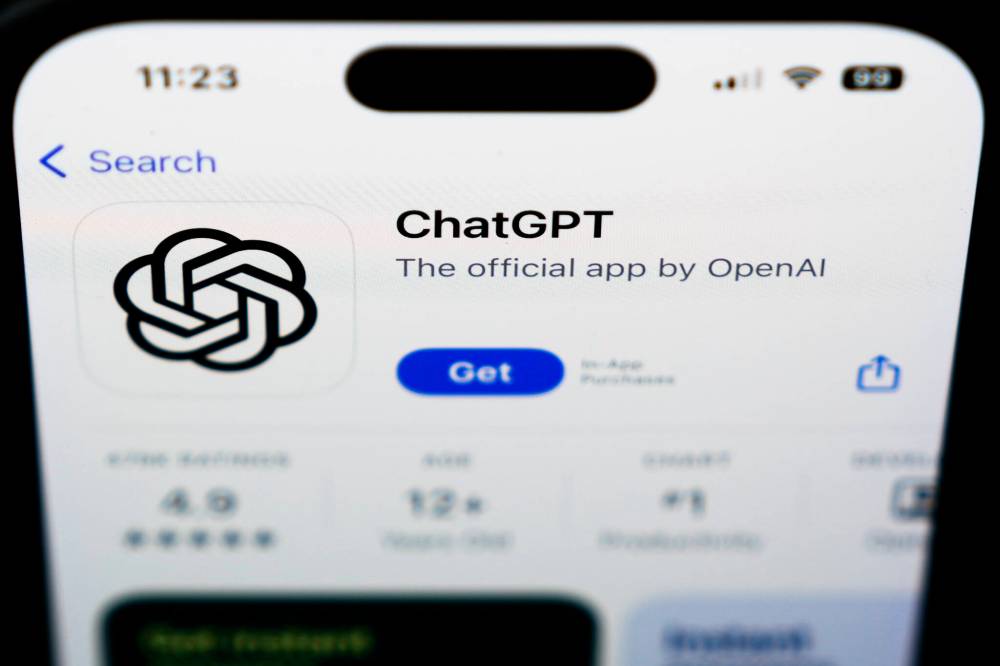AI fears to curb homework assignments
Advertisement
Read this article for free:
or
Already have an account? Log in here »
To continue reading, please subscribe:
Monthly Digital Subscription
$0 for the first 4 weeks*
- Enjoy unlimited reading on winnipegfreepress.com
- Read the E-Edition, our digital replica newspaper
- Access News Break, our award-winning app
- Play interactive puzzles
*No charge for 4 weeks then price increases to the regular rate of $19.95 plus GST every four weeks. Offer available to new and qualified returning subscribers only. Cancel any time.
Monthly Digital Subscription
$4.99/week*
- Enjoy unlimited reading on winnipegfreepress.com
- Read the E-Edition, our digital replica newspaper
- Access News Break, our award-winning app
- Play interactive puzzles
*Billed as $19.95 plus GST every four weeks. Cancel any time.
To continue reading, please subscribe:
Add Free Press access to your Brandon Sun subscription for only an additional
$1 for the first 4 weeks*
*Your next subscription payment will increase by $1.00 and you will be charged $16.99 plus GST for four weeks. After four weeks, your payment will increase to $23.99 plus GST every four weeks.
Read unlimited articles for free today:
or
Already have an account? Log in here »
Francophone teachers have been asked to limit homework wherever possible and promote nightly reading routines in response to the rise of artificial intelligence.
The Division scolaire franco-manitobaine shared new guidelines on “donner des devoirs” — handing out obligatory after-school assignments — with staff this month.
The Nov. 10 advice recommends Grade 7 to 12 students receive homework in moderation.

SHANNON VANRAES / FREE PRESS FILES
Alain Laberge, superintendent of the Division Scolaire Franco-Manitobaine, says most homework being handed in by students nowadays appears to be generated by artificial intelligence.
After-school assignments should be tailored to a student’s needs, focus on a specific skill and complement in-class support, according to the four-page document obtained by the Free Press.
“Most of the submissions, we find, are coming from AI, to be quite honest,” Division scolaire franco-manitobaine superintendent Alain Laberge said in an interview.
The 2022 launch of ChatGPT has made teachers hyperaware of plagiarism and whether students are submitting authentic work.
When it comes to homework, easy-to-use AI chatbots have joined caregivers as homework helpers, Laberge said.
In response, the francophone school division is working to limit homework and focus on sending home books from school libraries instead.
Desirée Pappel, president of the school division’s teachers’ association, has been fielding calls from concerned members about the “pretty prescriptive guidelines.”
“Members should have the professional autonomy to be able to determine what homework is appropriate for their students based on the needs of the students they know and course content,” Pappel said.
While noting her students have tended to do their best work in class — and she can ensure it is authentic that way — Pappel said she respects her colleagues’ differing approaches.
The division recommended its kindergarten-to-Grade 6 teachers only assign simple and optional homework, such as reading for pleasure.
“Reading is the most important thing to do at home,” Laberge said, adding he would prefer students hone their literacy skills rather than complete math questions at home.
He noted that parents in the division — many of whom are newcomers, be they from Quebec, France or the Congo — learned to solve math equations in a different way than what’s being taught today.
Despite their best efforts, academic help from parents can cause more confusion for a child and interfere with in-school learning, Laberge said.
The superintendent is outspoken about his concerns related to how much time students, including his teenage daughter, are spending in front of screens.
The school division was the first of its kind to implement a cellphone ban to reduce distractions for students and staff ahead of the 2023-24 school year.

Matt Rourke / The Associated Press Files
When it comes to homework, AI chatbots have joined caregivers as homework helpers say some educators.
Manitoba announced an outright ban on phones in elementary schools and new restrictions on personal devices in high schools the following year.
Also in 2024, teachers in the francophone division received explicit marching orders to limit computer time in their classrooms.
Laberge said the division is “trying to bring back (physical) encyclopedias” and expose children to other pre-Google research methods.
Citing feedback from teachers, students and guardians, he said it’s become a huge challenge to get children to read physical texts that require extended periods of concentration.
In its note to teachers, the division stated homework can generate stress and exacerbate inequalities, and quality is more important than quantity.
The fourth and final page of the Nov. 10 document references studies on the effectiveness of homework and researchers’ guidelines. The division created a related breakdown of maximum amounts of homework on a weekly basis.
Grade 12 students should not be doing any more than 75 minutes of homework four times per week, based on the guidance.
Pappel said teachers have a professional responsibility to engage in ongoing learning throughout their careers. “That helps us to adhere to best pedagogical practices,” the teacher and union leader said.
Public school teachers and leaders from post-secondary institutes across Manitoba are expected to convene to discuss the safe and responsible use of AI in early 2026.
The NDP government pledged to organize a first-of-its-kind summit at the opening of the third session of the 43rd legislature on Tuesday.
maggie.macintosh@freepress.mb.ca

Maggie Macintosh
Education reporter
Maggie Macintosh reports on education for the Free Press. Originally from Hamilton, Ont., she first reported for the Free Press in 2017. Read more about Maggie.
Funding for the Free Press education reporter comes from the Government of Canada through the Local Journalism Initiative.
Every piece of reporting Maggie produces is reviewed by an editing team before it is posted online or published in print — part of the Free Press‘s tradition, since 1872, of producing reliable independent journalism. Read more about Free Press’s history and mandate, and learn how our newsroom operates.
Our newsroom depends on a growing audience of readers to power our journalism. If you are not a paid reader, please consider becoming a subscriber.
Our newsroom depends on its audience of readers to power our journalism. Thank you for your support.
History
Updated on Wednesday, November 19, 2025 9:28 AM CST: Corrects typo







